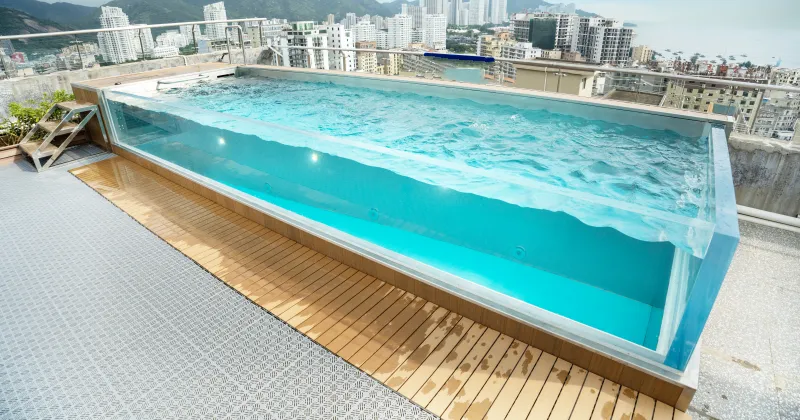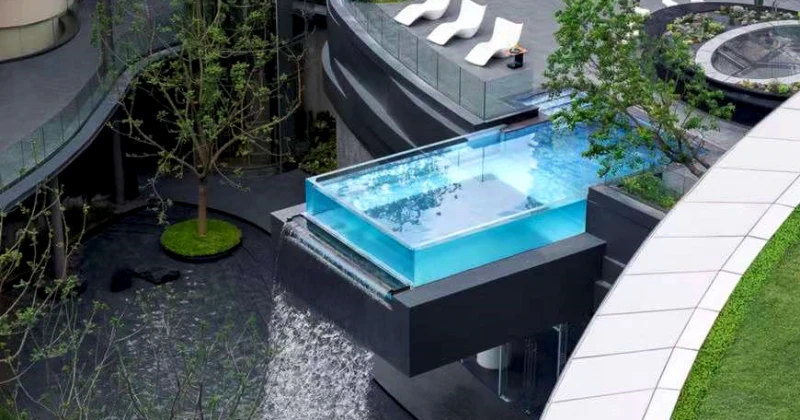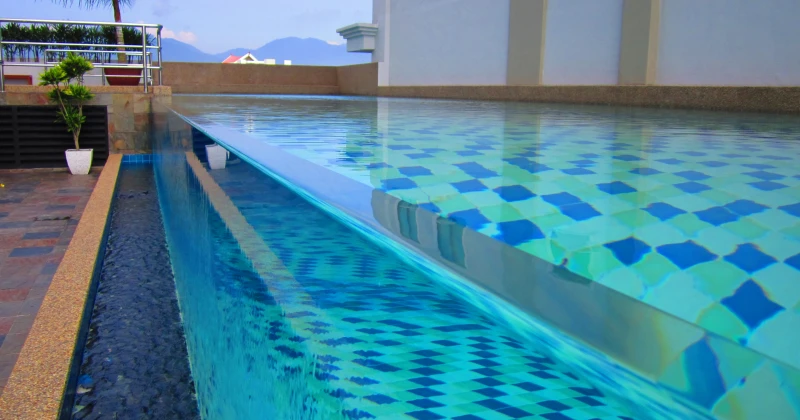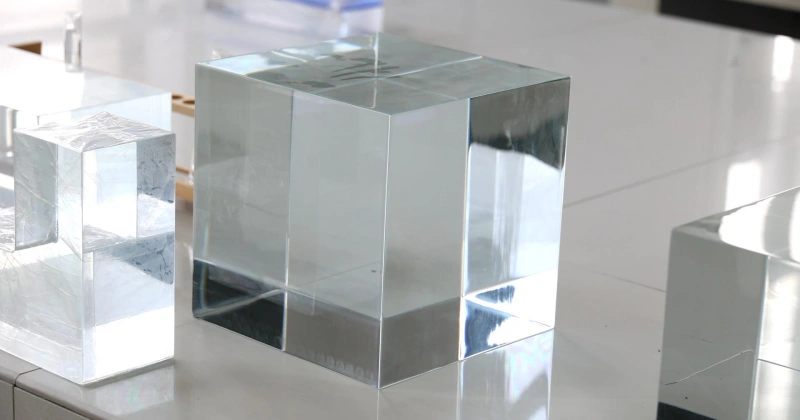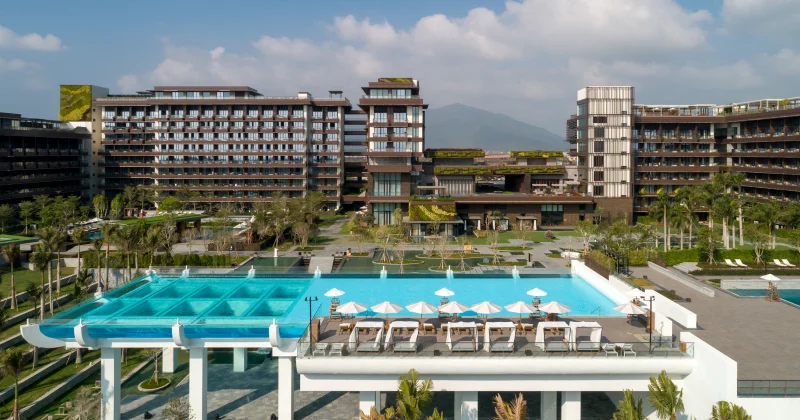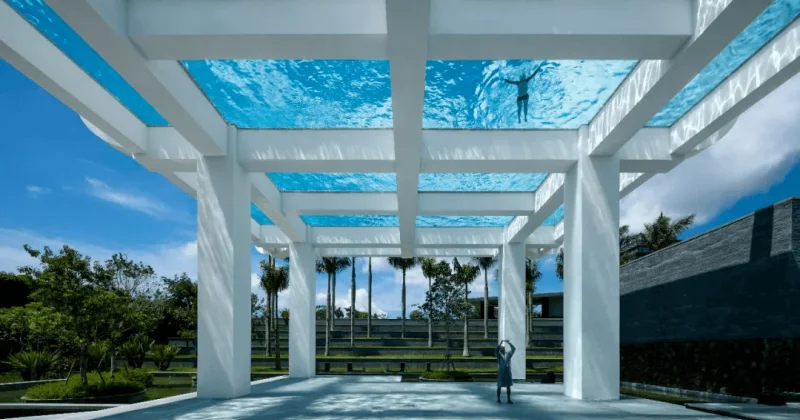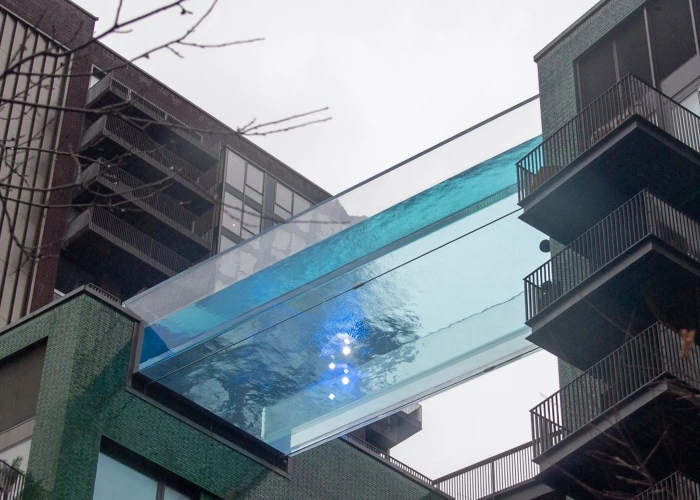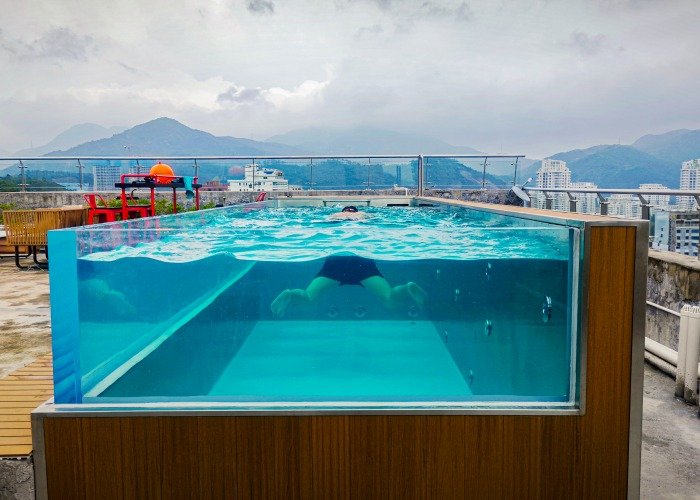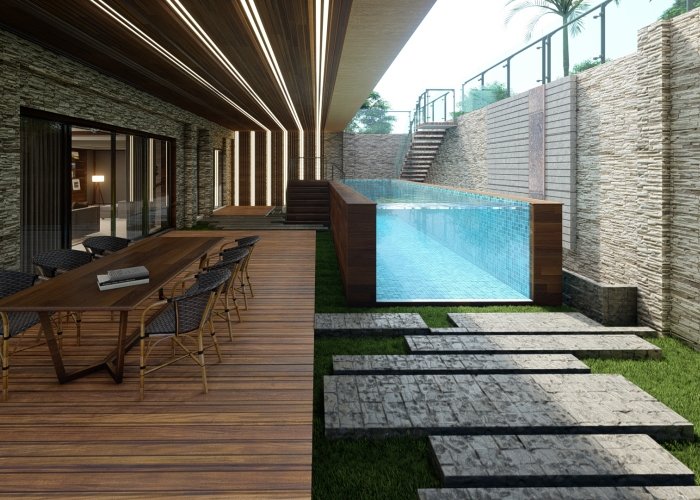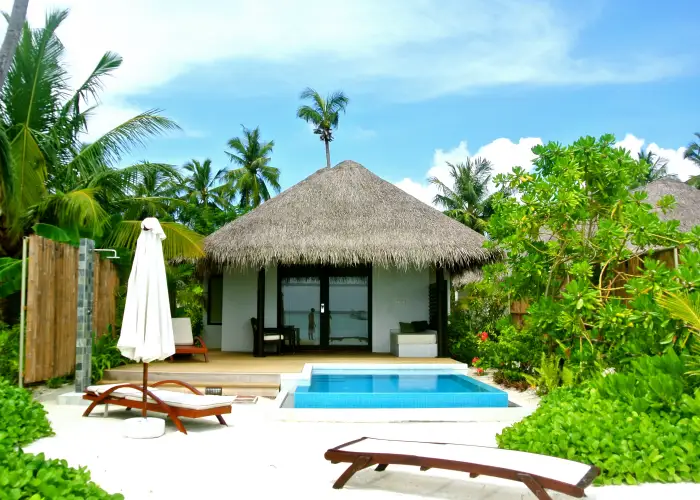
Eco-Friendly Features for Modern Pools: Sustainable Luxury
Imagine enjoying a refreshing swim on a hot summer day, while also appreciating the idea that your swimming pool is designed to be environmentally friendly. It is a great thought to have. Right? With the increasing environmental consciousness among people, many prefer having an environmentally friendly swimming pool.
These pools make homeowners live a life of luxury and take some chill time while not causing any harm to Mother Nature. They are meant to consume less energy, be sparing with water, and do not need toxic substances to clean something up, making them a fitting solution for people who are willing to control their carbon footprint.
People are now more interested than ever in increasing the sustainability of living spaces, and, therefore, environmentally friendly pools have become popular in the luxury pool segment. According to an Allied Market Research report, the market for eco-friendly swimming pools is expected to rise at a CAGR of 5.6% between 2023 and 2030. Such growth is associated with the requirement and passion for making sustainability an integral part of people’s lives.
This article will discuss the emergence of green swimming pools and analyze the aspects that contribute to the more sustainable method of having fun in the water and having an associated luxurious, environmental pool.
The Concept of Eco-Friendly Swimming Pools
An eco-friendly swimming pool has some traits that make it environmentally friendly. It incorporates low-energy pools, low water consumption, and little or no need to use chemicals. It is intended to be more economical and to provide less carbon emissions than ordinary swimming pools.
There are key differences between traditional pools and eco-friendly swimming pools:
- Energy consumption: The green pool uses little energy, with low-energy pumps and solar heating.
- Water Waste: Green pools are efficient as they help to save rainwater and cover the pool with a sheet to keep water from evaporating.
- Chemical use: These pools utilize fewer chemicals, most of the time using natural water filtration systems instead of chlorine.
Generally, an eco-friendly pool design attempts to bring back luxury without compromising the environment.

Eco-Friendly Features for Modern Pools
1. Energy Efficiency
Energy conservation or efficiency is a distinct feature of an environmentally friendly swimming pool. This type of pool is very economical since it does not use a lot of energy; therefore, their maintenance charges are low and friendly to nature.
- Solar-powered heating systems: Solar water heating is employed to lessen the heavy reliance on electric energy, and utilize the energy generated from the sun. This is cheaper and more environmentally friendly, especially in regions with ample sunlight.
- Energy-efficient pool pumps: Water circulation and filtration require pumps, which are also known as pool pumps. Normally, they are very power-hungry. On the other hand, energy-efficient pool pumps can be up to 83% more efficient than traditional ones, thus giving you ample yearly savings on electricity.
- LED pool lighting: Although you may not think of it as a huge cost lighting your pool does cost you a lot in the long run. You can save on electricity bills if you utilize LED lights instead of conventional lighting sources. LED lights use less energy than normal lights to illuminate a pool area. They also have a longer life cycle, so they don’t need to be replaced as frequently.
2. Sustainable Water Management
Water saving is another important feature of modern, environmentally friendly pools. Water conservation is a perfect method of reducing wastage.
- Rainwater harvesting: With rainwater harvesting, homeowners can ensure they use the rainwater to refill the pool. This decreases energy use to refill the pool artificially and hence saves your electricity consumption.
- Pool covers: Pool covers are also useful because they minimize evaporation; thus, the pool does not lose too much water. The U.S. Department of Energy states that pool covers can cut evaporation by 50%-70%, saving thousands of gallons of water each year.
3. Eco-Friendly Pool Chemicals
With conventional swimming pool design, water purification is normally done through chemicals such as chlorine. However, eco-friendly swimming pools do not use such chemicals; if they do, the use is minimal.
- Saltwater chlorination systems: Unlike regular swimming pools containing chlorine tablets, saltwater pools employ salt in chlorine making. Pool & Spa News reported that this is claimed to minimize the use of chemicals by 50 to 75 percent and give a long-term breakneck advantage on maintenance costs.
- Natural filtration systems: There can also be some environmentally friendly pools serving to use plants in water filtration, a process called bio-filtration. Such filtration uses fewer chemicals, and the water is cleaner than other filtration systems.
4. Recycled and Sustainable Materials
Another approach to making eco-friendly pools is to consider appropriate construction materials. A great opportunity exists to make pools environmentally friendly constructions using recycled and long-lasting materials.
- Recycled glass: Pools can be built using recycled glass tiles or other materials. It reduces the appeal to new raw materials and efficient resource use.
- Natural stone and sustainable wood: There is another way to minimize environmental impacts–using natural stone or timber for decks and landscape design.
5. Smart Pool Technology
Integrated technologies, in particular, also contribute to improving pool environmental friendliness. The smart system can control energy consumption, water level, and, therefore, the pool's efficiency.
Smart pool systems can be used to achieve efficient heating, cleaning, and lighting. Automatic timers are also a good option to control temperature and other parameters. This way the pool will only consume power when needed.
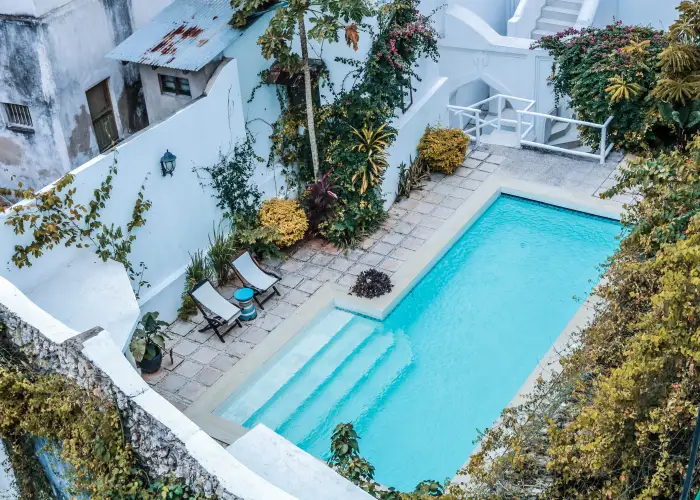
Designing Modern Eco-Friendly Pools
1. Innovative Pool Shapes and Sizes
As part of modern architecture, most eco-friendly swimming pools can be more compact and more efficient in energy consumption.
- Compact pool designs: A general idea of small pools is favorable as they heat up faster and contain less water. These pools are ideal for homes with limited space while giving you the best swimming experience ever.
- Custom shapes: These may be shaped according to the available space and efficiently use resources. This comprises using energy-efficient materials and minimizing situations where water or energy is spent unreasonably.
2. Incorporating Natural Elements
Another ecologically relevant design is using natural components. By integrating pools with nature, you are improving the look of your pool and enriching the world around you.
- Landscaping: Planting around the pool will assist in combating heat and may not require cooling systems. They also make the place more beautiful and help create relaxation.
- Shaded areas: They also can help cast a shadow on a swimming pool, reducing water's evaporation. This tiny modification reduces water usage and makes swimming more enjoyable.
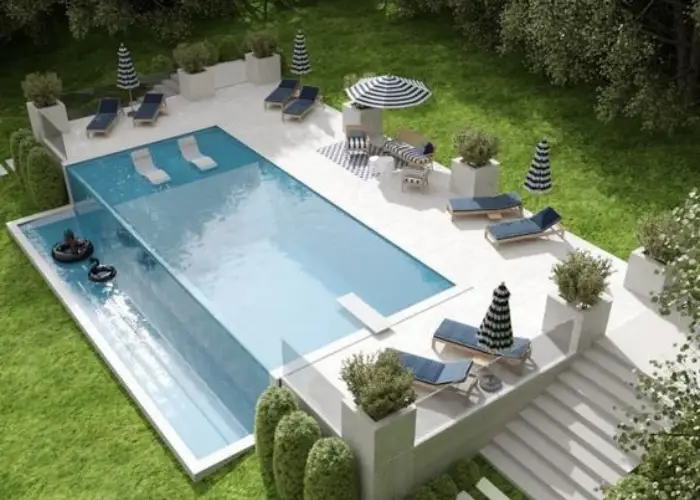
Benefits of Eco-Friendly Pools
1. Environmental Benefits
One major advantage of adopting an eco-friendly pool design is its lower environmental impact.
- Lower carbon footprint: Though people pay a lot of attention to the pool's pollution and carbon emissions, it can be managed using energy-saving equipment and solar power.
- Cleaner water: Fewer chemicals also make the water much healthier and safer for swimmers.
2. Cost Savings
Switching to an eco-friendly pool can result in long-term savings.
- Lower energy costs: Implementing solar power, low energy-consuming pumps, and using LED lights reduces the overall electricity costs. According to the EPA, homeowners can save $300-$500 annually by switching to energy-efficient pool systems.
- Reduced chemical costs: Natural water systems and natural water purification do not have to include much chemical use; therefore, you would spend little money on buying these chemicals.
3. Health and Wellness Advantages
An eco-friendly pool has many health benefits apart from the concerned environmental impacts.
- Safer water: Since the water in eco-friendly pools doesn’t utilize chemicals like chlorine to filter it, it is less harsh on the skin and eyes.
- Enhanced relaxation: Creating a natural environment, such as plants, trees, and stones around the environmentally friendly pools, makes the experience more enjoyable. It can enhance your health and bring that much-needed peace of mind.

Applications of Eco-Friendly Pools
1. Residential Eco-Friendly Pools
Organic swimming pools are gaining popularity among customers who prefer to turn their backyard into an environmentally friendly area.
When purchasing a pool, know that whether you decide to buy a small or large backyard pool, there is an environment-friendly pool for anyone. These pools can be installed in any size to fit any home and thus offer water and energy conservation.
2. Commercial Eco-Friendly Pools
Public pools at hotels, resort areas, community recreation centers, clubs, etc, also gradually incorporate environment-friendly pool characteristics.
Most hotels and resorts] require strategies and practices that enable them to reduce carbon emissions to achieve organizational sustainability. When these commercial pools incorporate efficient technologies, water conservation techniques, and environmentally friendly products, customers can enjoy their experience in an environmentally friendly way.

Conclusion
People now are urged to make green choices for the ecosystem when they install new pools in their backyard. Presenting simple energy-saving ways through efficient pumps, appropriate construction materials, and natural water filtering has made the process of achieving sustainability a lot easier.








